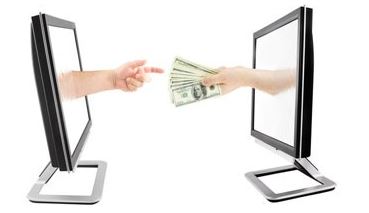There are many things that may spring to mind when you think of your bank, but you’re probably not thinking of it as a huge database. But think about it – that’s exactly what it is. Banks are kind of ‘digital depots’ where our wages automatically and electronically flow in, and money to pay for credit card and utility bills flows out. We could look at banks as expensive and antiquated payment processors, and with cash in a savings account earning you barely any interest these days, there’s not a lot of benefit to us.
I mentioned antiquated: although online banking plays a big part in the banking process, there’s still something very old fashioned about banking today – with its branches and paying in slips – which is just waiting for someone to come in and truly digitise the entire experience.
But how would a fully digitised banking experience look, and what would it mean for us? Well, we can take a look at Alibaba’s mobile payment platform, Alipay, for a glimpse into the future. The brainchild of Jack Ma, Alipay – which bears more than a passing resemblance to PayPal – processed $519 billion worth of digital payments in 2013 (compared to $180 billion by PayPal).
But Alipay would have you know that they offer a lot more than easy e-commerce payments. According to a piece in the Wall Street Journal, Alipay is morphing into all-in-one banking tool: a savings bank, wire service and investment house. And it’s all done through your tablet or smartphone.
This broad, mobile service doesn’t exist in the UK, nor (for now) the US, but when it does arrive, you can bet it will come via PayPal.
Two of PayPal’s founders, Elon Musk and David Sacks, last year called for PayPal to transform itself into something that looks very much like Alipay does today. They predicted that if PayPal became a full-service bank it could eventually hit a market cap worth $100 billion.
But to pursue this destiny, PayPal needs to offer all the services of a bank, and since PayPal won’t have to spend money running physical branches, it can offer the highest interest rates around. PayPal once did pay competitive interest on money in held in its accounts, but stopped a few years back. Now there is little incentive to keep cash in your account, as it’s better to fund PayPal purchases with a Visa and reap the reward points.

PayPal makes money when you have cash in your account (it charges sellers about 3% the total transaction amount). When you fund your PayPal account with a credit card, PayPal must pay Visa or MasterCard a vast majority of the fee.
PayPal’s new president David Marcus has wasted no time in revamping PayPal’s design, mobile app and its customer service, and is now making a big push in providing credit (Bill Me later) and moving mobile payments into physical stores (PayPal Beacon). It will be interesting to see if, and how, he gets PayPal back into the banking business. If PayPal doesn’t make the move, someone else will.


